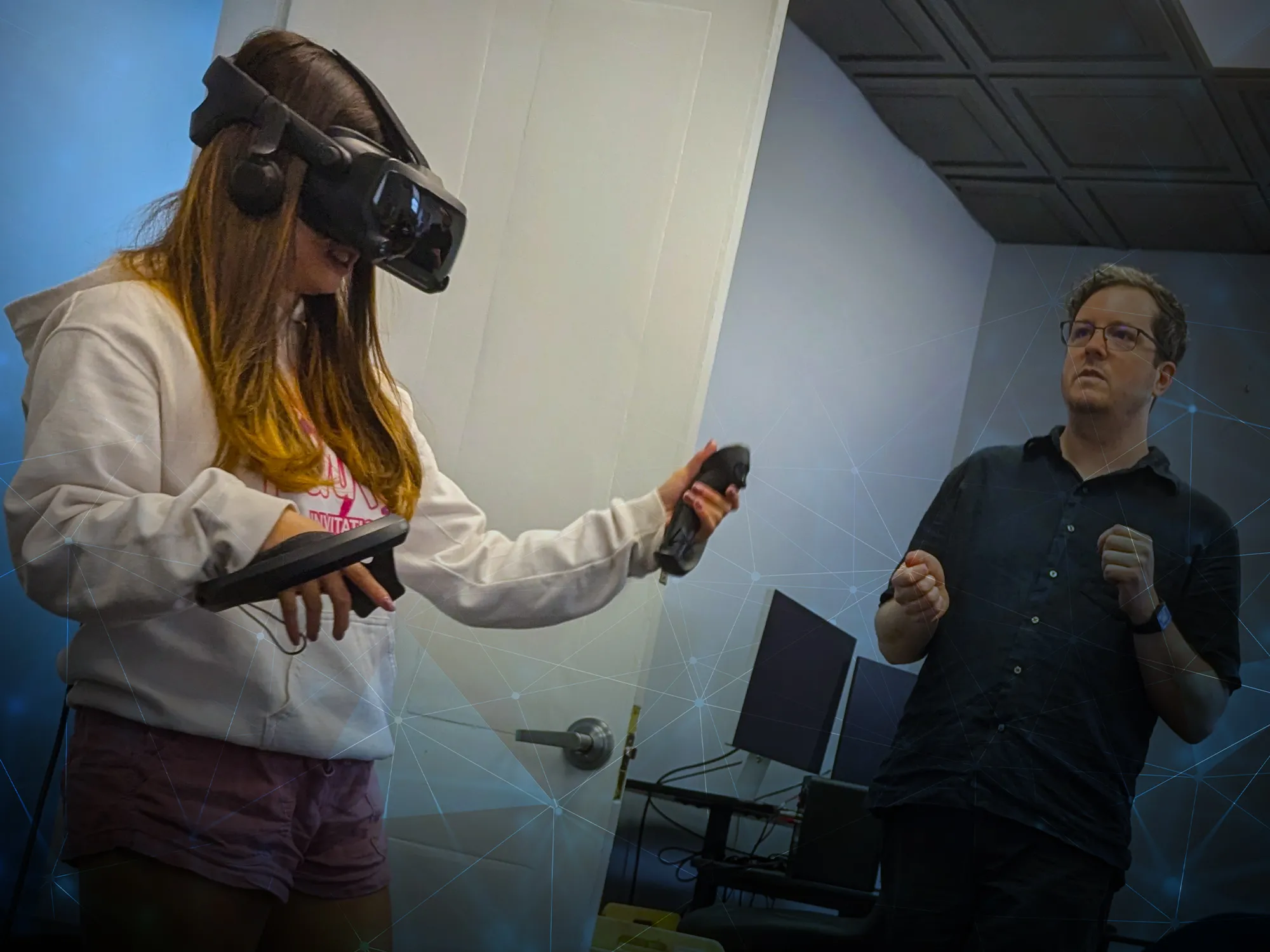School of Liberal Arts January 2025 Newsletter

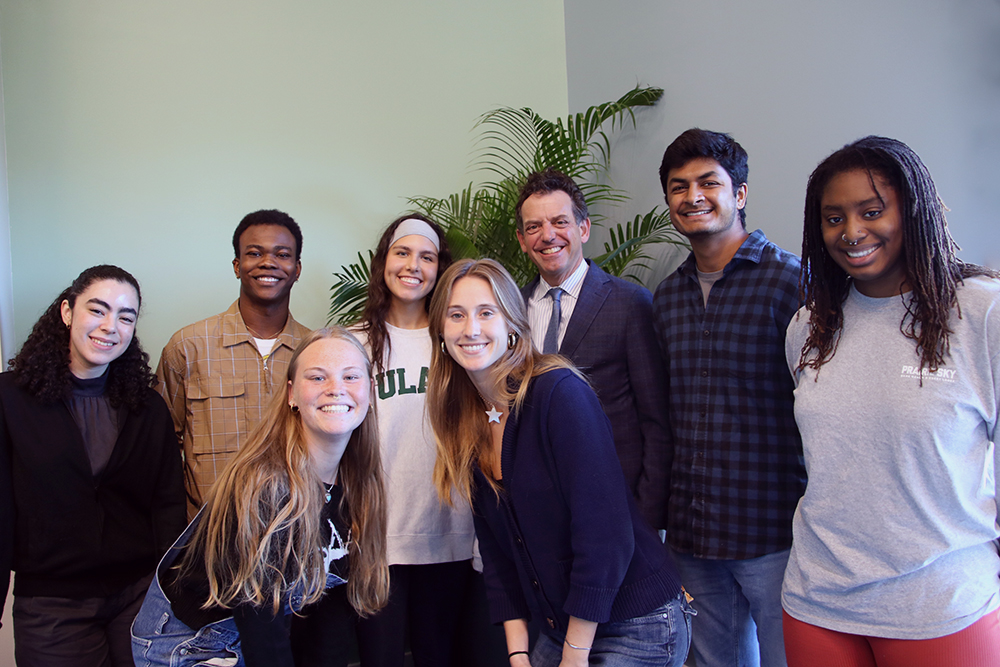
"Impact as a Liberal Arts Value" by Dean Brian Edwards
"In authoring contributions to previous issues of this magazine, I have tried to identify key attributes of a liberal arts education [...] But how do we know when our approaches are working? Where should we look for impact, how should we measure it, and when should we reframe how we define it?"
Read full article in the School of Liberal Arts Magazine.
Real People, Real Money: Service Learning with Community Impact
Every fall, “Philanthropy & Social Change” students are learning the full grant process, from organization selection to funding. Their final presentation? A big check celebration that awards the course's chosen local nonprofits.
Newcomb Department of Music Shares Plan to Expand Curriculum Pathways
As the music landscape evolves and change to address new technology, opportunities, and business practices, the Department of Music has reworked and revitalized a curriculum that is starting to make noise among students.
Road to Super Bowl: Alum Book Tackles Racism and the Birth of the Saints
Erin Grayson Sapp (SLA ’13) writes about an overlooked chapter of history in Moving the Chains: The Civil Rights Protest That Saved the Saints and Transformed New Orleans.
Save 2024 Published Works by Liberal Arts Faculty for Future Reading Lists
In December we recognized 30 professors who published major works last year, from plays and novels to exhibitions and albums. View our program for the full breadth of publications.
Upcoming Featured Events
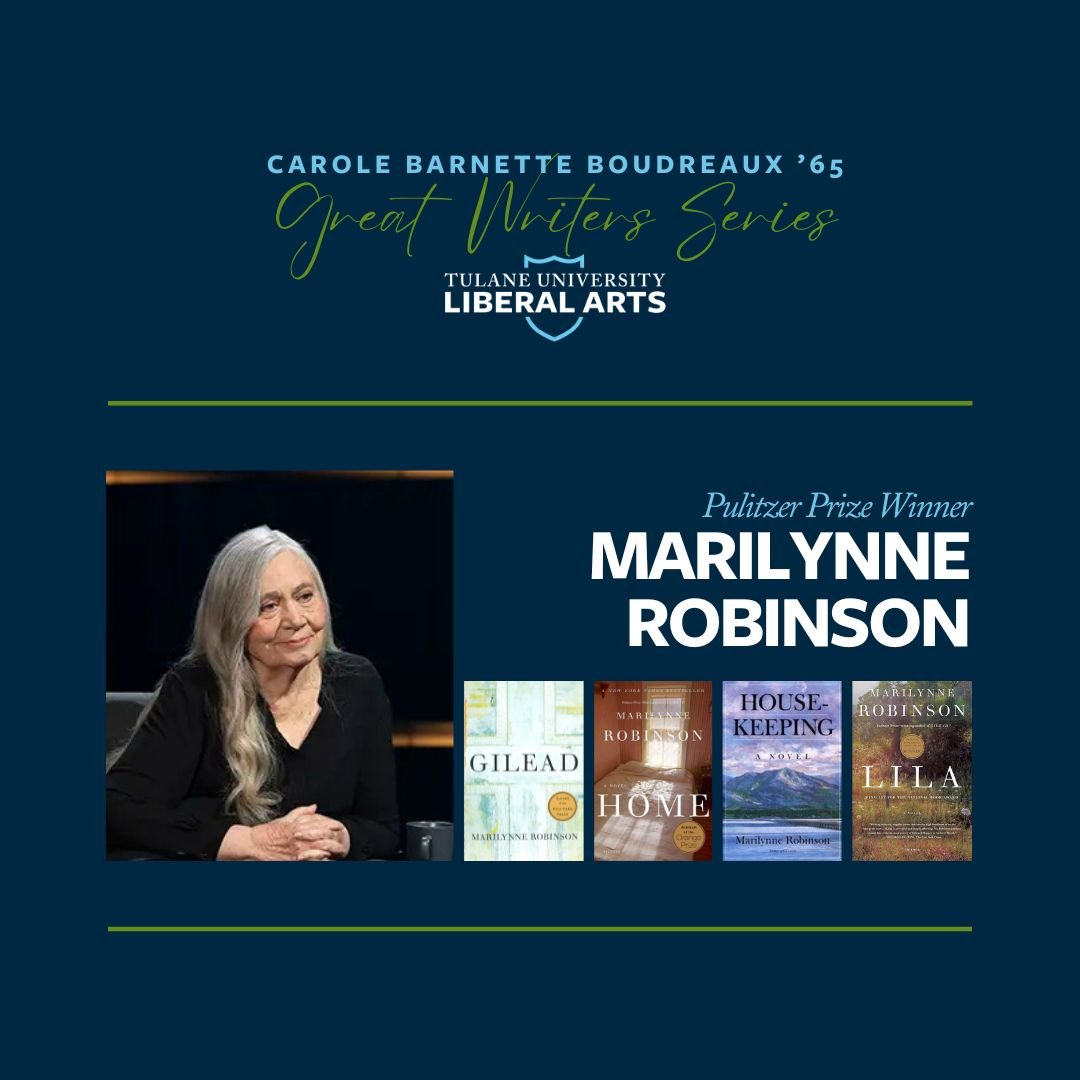
Great Writer Series: Public Talk & Book-Signing Reception
In two weeks, the Carole Barnette Boudreaux '65 Great Writers Series welcomes Pulitzer Prize-winning writer Marilynne Robinson (Gilead, Home, Lila) to campus for a series of events. Robinson is a decorated author who was awarded the 2012 National Humanities Medal by President Barack Obama for "her grace and intelligence in writing." Her free public talk will be followed by Q&A and signing reception, with books for sale on-site by local partner, Blue Cypress Books.
Tuesday, January 28, 2025 at 6:00 PM
Lake Theater
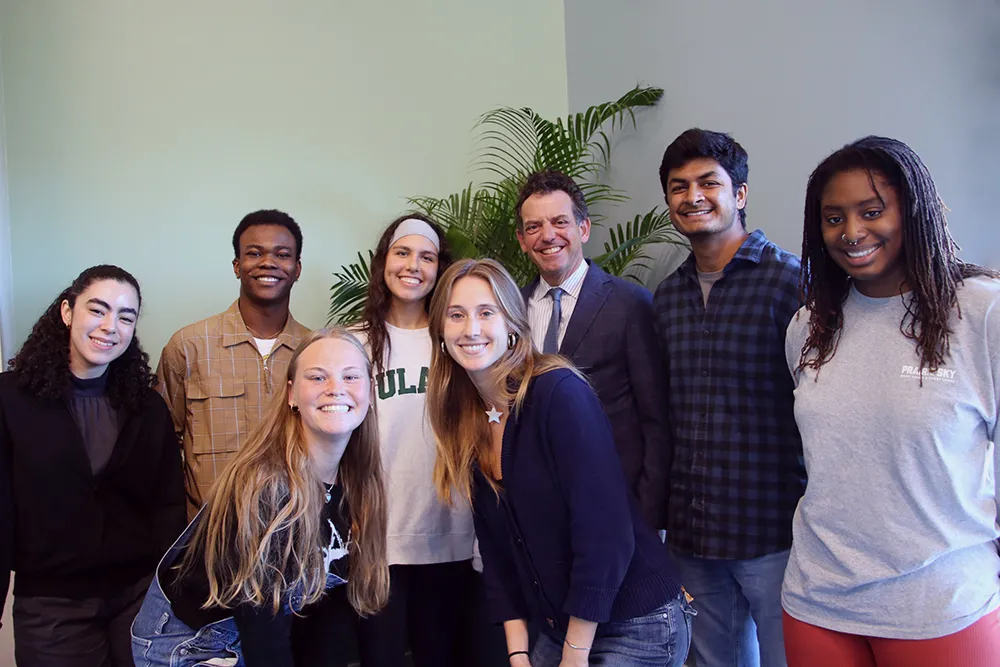
SLA Alum’s Book Tackles Racism and the Birth of the Saints
Erin Grayson Sapp was a student in the School of Liberal Arts' interdisciplinary PhD program — focusing on civil rights — when she first learned about the 1965 AFL All-Star Game and the January day when 58 Black and white players walked out of the Tulane Stadium to protest New Orleans' lingering segregation laws and discrimination against Black teammates. As Sapp continued her research, she discovered just how closely the Civil Rights movement was tied to the fate of football in New Orleans. Now, as the city prepares to host the 59th Super Bowl in February, her new book Moving the Chains: The Civil Rights Protest That Saved the Saints and Transformed New Orleans spotlights this pivotal moment in American sports history and its defining role in creating both the New Orleans Saints and the Super Bowl itself.
To understand the context of the walkout, Sapp studied a decade’s worth of sources on the city’s racial struggles and sports history. After earning her PhD in English and American History, she became a scholar-in-residence at the Historic New Orleans Collection, where access to invaluable archives helped transform her initial term paper into this major project.
In 1965, despite its role as longstanding host of the Sugar Bowl, New Orleans was not yet a football city — especially since integrated university teams and clubs across the nation refused to play here due to the fact that the city was holding onto Jim Crow-era segregation laws. When players arrived for the All-Star Game in January of that year, Sapp explained over email, “The All-Stars were expecting a week of celebration, but instead, the Black players were turned away from taxis, restaurants, and nightclubs.” When Black players checked in at the Roosevelt Hotel alongside their white teammates, they were told they would have to use the side entrance. Their mistreatment reflected the racist policies that ruled the city, creating a mixed atmosphere of apathy and turmoil.
The All-Star boycott had the power to break through some of this apathy. “In New Orleans, before the walkout, civil rights progress largely took place slowly and quietly, behind closed doors,” Sapp shared. “The walkout gave citizens a popular cause to rally behind, a shared reason to openly promote progress.”
The game was meant to be a crucial stepping stone toward giving the city its own professional football franchise — something locals believed was just out of reach. “With the All-Star Boycott,” Sapp explained, “suddenly racial conservatism was football obstructionism. In a striking reversal of old trends, widespread change took place very openly and quickly after the walkout.” By 1966, when three Black players returned to New Orleans, their cab driver took them right to an oyster restaurant in the French Quarter.
“The driver explained that those guys didn’t realize the impact they had,” Sapp emphasized. “The city wanted pro football so badly they had accelerated integration, meaning cabs, cafes, and clubs were open to everyone.”
On February 3, 2025, mere weeks after the 60th anniversary of the All-Star Game walkout, two players — Pro Football Hall of Famers Bobby Bell of the Chiefs and Ron Mix of the Chargers — will return to New Orleans and join Sapp for a talk at Tulane School of Law. The two are among the many 1965 All-Star players who went on to major pro football careers, winning awards and Super Bowls — while often using their platforms to continue advocating for social change. “This was a very early example of activism in American sports,” Sapp stated. “And they had no idea what the repercussions would be. They had a monumental impact that wasn’t even lost over time, but rather downplayed in real-time, and just never fully brought to light.”
“Locals have long clung to that colorful story of backroom politics (not serious civil rights reform) as the origin of the Saints,” Sapp remarked. In 1966, two Louisiana congressmen greased the necessary palms to pass antitrust legislation through Congress so that the American Football League and National Football League (NFL) could merge — a move that gave New Orleans hope for their own team and created America’s first Super Bowl. While the rest of the Saints’ origin story is familiar New Orleans lore — a shady quid pro quo between a Louisiana politician and the NFL commissioner — the All-Star Game and its athlete activists get left out of the picture. After the protest, many white New Orleanians became defensive. As the likelihood of getting a pro team increased, New Orleans wanted to prove to the NFL that they were a big-league city and any new progress was “just proof that the city had been had been tolerant all along.” As a result, Sapp said, “Locals largely never admitted change was needed — and never celebrated that it occurred.”
Moving the Chains is the first book to spotlight the All-Star Game boycott and its significance. Sapp found it “heartbreaking” to learn that many All-Star players felt forgotten for their activism. “They deserve to be honored for their courage, action, and impact,” she said. “I only wish more had been during their lifetimes.”
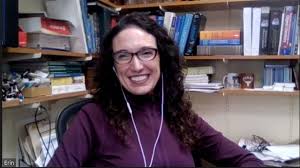
Like all good historians, Sapp excels at connecting dots and uncovering hidden throughlines. The All-Star Game boycott and the progress it ignited helped the city land a pro football franchise; in turn, the Saints redefined New Orleans. With their own team, New Orleans became a major city, football hub, and event destination — hosting their own Super Bowl in 1970 (at Tulane Stadium). Moving the Chains and the All-Star Game legacy further proves how much the Saints mean to New Orleans.
“The power of the team stands out to me as something exceptional, unlike any other league city. And the walkout explains why that is,” Sapp emphasized. And since unity was so key to founding the Saints, she goes on, “From day one, the Saints club was absolutely everyone’s team.”
Order Moving the Chains: The Civil Rights Protest That Saved the Saints and Transformed New Orleans from LSU Press and other booksellers, and stay tuned to register for the February 3 event at Tulane School of Law.
Erin Grayson Sapp (SLA ’13) writes about an overlooked chapter of history in Moving the Chains: The Civil Rights Protest That Saved the Saints and Transformed New Orleans.
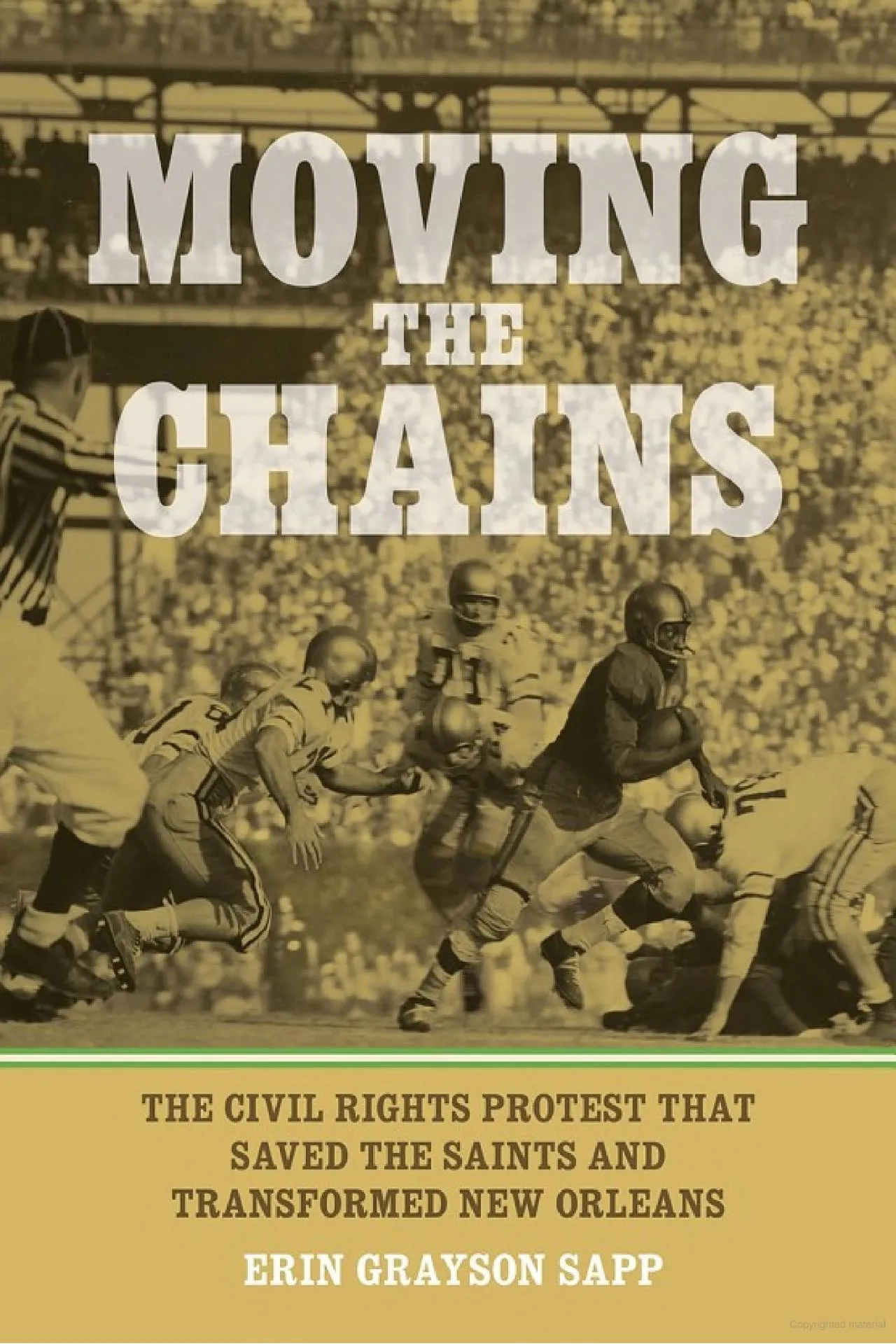
Real People, Real Money: A Powerful Approach to Service Learning
As students, our education is guided by lectures, papers, and exams, but the world inside the classroom is often much simpler than the world outside of it. What would happen, though, if the two worlds collided? If the idealistic theories of the classroom clashed against the difficult practices of reality? Well, look no further than Professor Leslie Scott’s fall course, “Philanthropy and Social Change.”
“Philanthropy and Social Change” is a service-learning course that uses experiential philanthropy to study the nonprofit sector, civil society, and social justice. Students in the course act as grant funders, using a $10,000 grant from Doris Buffett’s Learning by Giving Foundation to fund not-for-profit performing artists in New Orleans. This “learning-by-doing” approach forces students to confront the power and privilege of managing scarce resources in the face of abundant need.
On Wednesday, December 4, the course culminated in its student-led award ceremony, which brought together the students from the “Philanthropy and Social Change” course, Tulane faculty and staff, and the award recipients. Checks for $5,000 were presented to the two recipients of the class grant: Music Box Village and Culu Children’s Traditional African Dance Company.
Music Box Village is the flagship project of New Orleans Airlift and opened in 2011. A whimsical village of artist-made interactive “musical houses” and architecture, this grant will help fund a Creative Industries Internship Program — helping young adults in New Orleans to learn technical skills in music and art event production.
Culu Children’s Traditional African Dance Company — the organization I selected to represent during the course — is a children’s dance organization founded by New Orleans native Mariama Curry in 1990. Culu is dedicated to the documentation, preservation, promotion, and education of traditional African folklore. The company attends a traditional African dance conference each year and puts on its own annual conference in New Orleans during the summer. This grant will help fund their 35th anniversary conference, “A Visit to Africa.”
With tears in their eyes, both recipients accepted their checks and thanked the class for their work. Leah Hennessy, Interim Executive Director of Music Box Village, shared her appreciation for the students in the course who volunteered at Music Box by working the door, scanning tickets, and even doing manual labor to set up for shows. After some tough times, she explained, this grant was “everything.” Curry also became emotional when expressing her gratitude for the award. “This is the largest amount of money we’ve ever gotten,” she said. “You work so hard but are rarely acknowledged for your work. So, when you are,” as she wiped tears away, “it means a lot.”
The award ceremony was a satisfying finale for an intense semester of advocacy and deliberation. While only 2 applicants received funding, the class began with 26. The course itself was composed of 26 students, each tasked with representing and advocating a community partner. Throughout the semester, students met in person with their community partners to craft a student-led presentation to request funding. This is what made the course unique — instead of applicants writing their own application, students committed time to learning about their partner and created a grant application for them. This is also what constituted the service-learning component of the course. Around 15 hours were spent meeting with partners and developing their presentations. The remaining 5 hours were spent volunteering. Since most applicants were not funded, volunteering ensured that students still gave their community partner something impactful — their time.
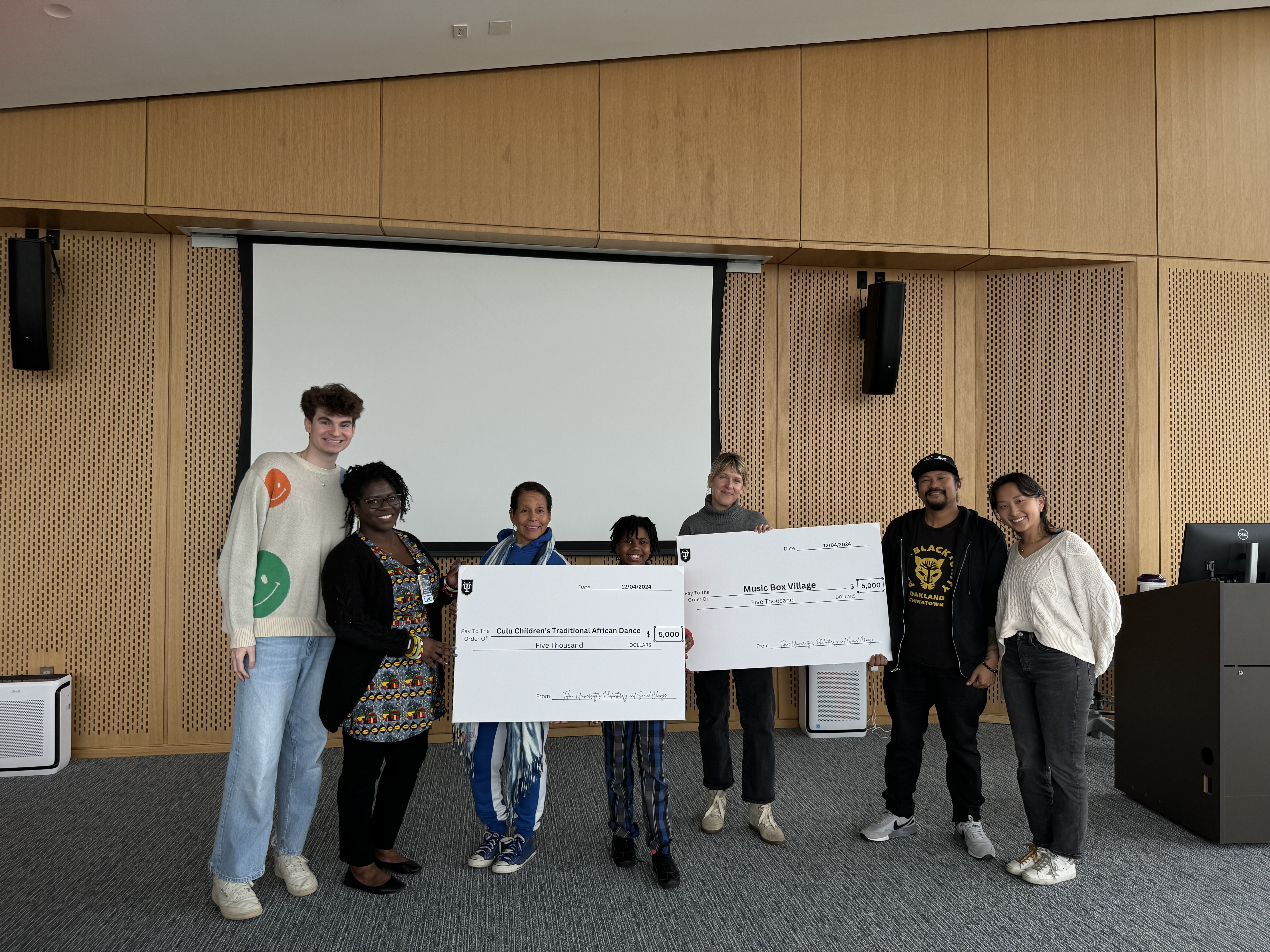
Students were also responsible for creating their own adjudication process. All decisions, from creating the process to selecting the winners, were decided by a majority vote. Ultimately, we decided that 1, 2, or 3 partners would be awarded. The minimum amount that could be awarded was $3,000, while the maximum amount that could be awarded was the full $10,000. The award would be unrestricted, meaning the recipients could use the funds on whatever they needed (programming, operations, etc). We created our own weighted rubric, which assessed criteria like use of funds, necessity and urgency, and impact. The overall grant funding process was conducted over 3 rounds.
I feel so lucky to have been a member of the fall 2024 “Philanthropy and Social Change” course. I had taken courses about nonprofits and development at Tulane before, but nothing compared to this course. I saw firsthand the inequities of how grant funding operates in the United States, with many large foundations requiring lengthy written grant applications, extensive financial documents, and, for recipients, reports on exactly how the grant was used. This course challenged those norms. We did not make our community partners take time out of their busy lives to write a grant application, nor did we require them to prove finances or share every detail of how they intended to use the funds. This approach, trust-based philanthropy, was the bedrock of our class’s approach.
This extremely personal process allowed me to have a service-learning experience that I never could have imagined. I am leaving this course with new relationships and connections that will last long past this semester. I have had the pleasure of forming an authentic relationship with Mariama and the mothers and children of Culu. I helped them make marketing materials for their shows, and we celebrated their award at a Friday night dinner. I plan on attending their annual conference and seeing the beautiful art our class funded come to life on stage!
Luke Broussard (SLA ’26)
Students from the "Philanthropy and Social Change" class present grants to representatives from Music Box Village and Culu Children’s Traditional African Dance Company at the end-of-semester awards ceremony.
An Ode to your Sweet Soul & to all you've done For Me
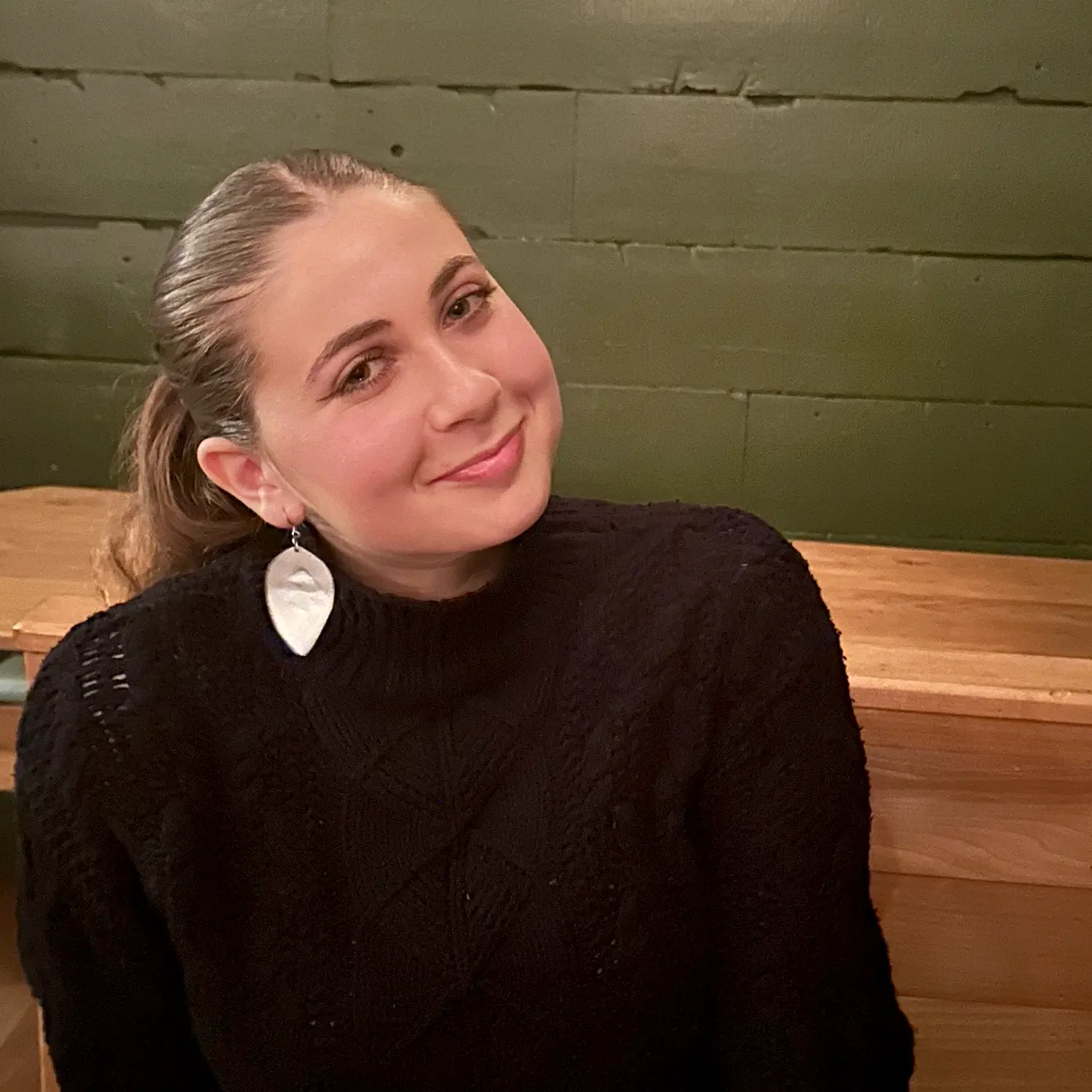
An Ode to your Sweet Soul & to all you’ve done For Me
Originally published in the 2024 issue of the School of Liberal Arts Magazine
I called you on the phone today
rang you up cause I was down
I wish I called you up more often
I always want to hear the sound
of your voice singing happy birthday
so deep, the melody,
when you used to sing at parties
I just know the room would be caught up
standstill in a thrill
in awe of your beauty, as you’d work the room
your voice would bloom
in the heavens, they’d hear thee!
In my mind, I hear your soothing voice
I let it wash all over me
and when I’m kind I feel your soothing soul
a shining pearl that helps me be
the best version of myself — the Remi that you always see
the depths of where my soul resides, where it hides, and where it’s free.
We talked for hours like we always do,
a flood of love surging through our phones, you remind
me that love takes patience, that we need
to speak up to show up for the children
we once were and the children that we know
are growing up beside a father that I never got to know.
When I was their age, I’d call you up,
crying to you ’cause he’d scream
obscene insults, say it’s my fault he’s spitting
fire through his teeth. And as his eyes
were bulging from their sockets,
his sockets barely holding on, my heart
would sink into your hands — a puddle
filling up your palms. You’d calm me down
with that sound, la di dum di dum
di di, and then you’d ask me to forgive him
for the havoc that he’d wreak. I did my best
because you asked — said you’d talk
to him for me. But you cannot change what wants
to stay the same, locked away without a key.
We know this now (I think we always have),
and I’m proud to tell you that he no longer has the power
to take myself away from me.
Remi Bass (SLA '25)
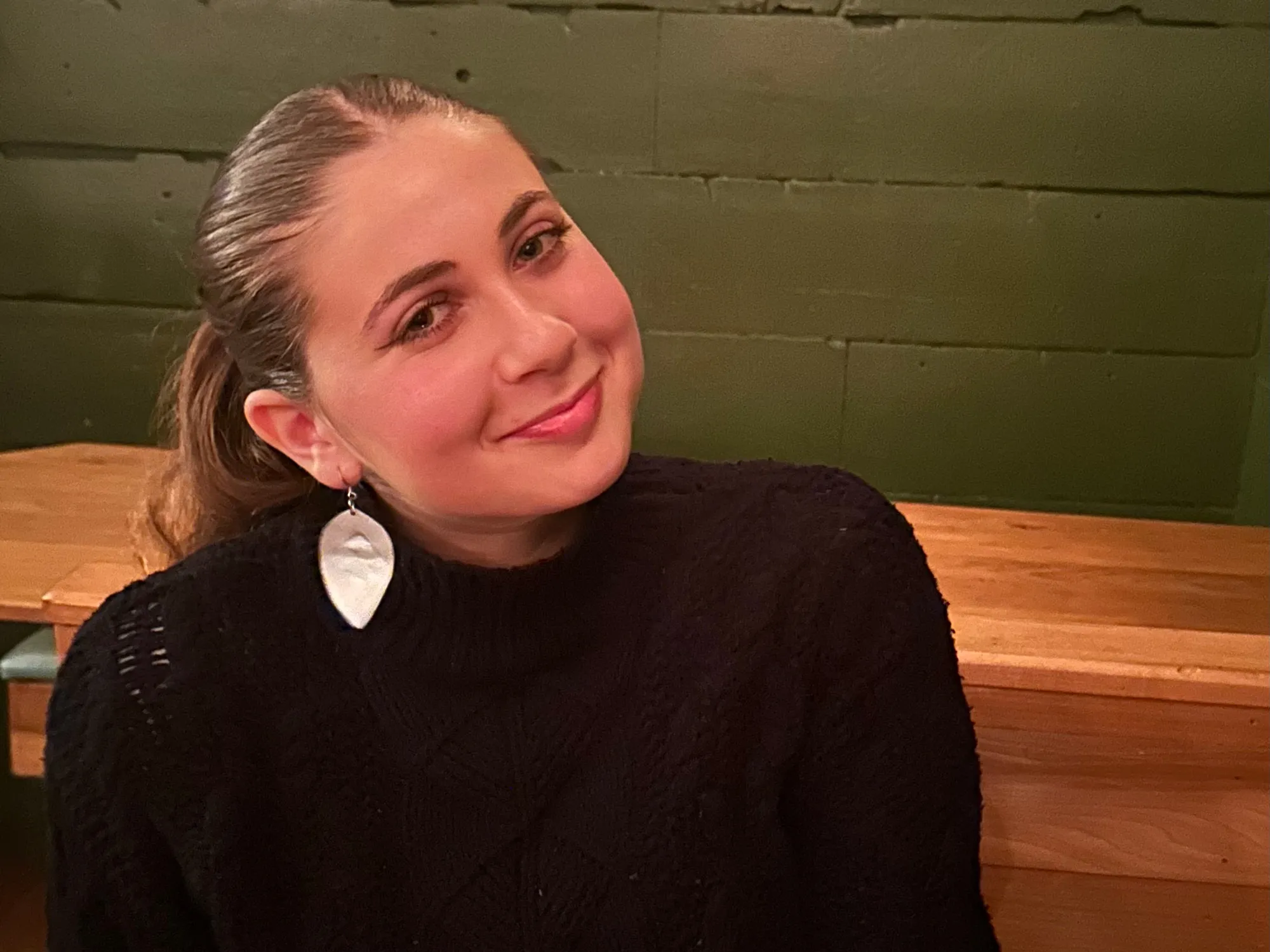
Remi Bass is a senior studying philosophy and English with a concentration in creative writing and a minor in SLAM.
Her poem, “An Ode to Your Sweet Soul and to All You’ve Done for Me” is a tribute to the speaker’s grandmother and the refuge she provided, as well as the simple but profound impact of a phone call or conversation.
She was awarded the Studio in the Woods Residency and had the privilege of writing in solitude and working on her upcoming thesis – her first poetry collection. She also served as the poetry editor for The Tulane Review, a magazine dedicated to fostering empathy and inclusivity by publishing the community’s creative writing and art. In addition to her English pursuits, she has been a member of the pre-law fraternity, Phi Alpha Delta, for the past two years.
After graduating with a BA from the Tulane School of Liberal Arts in spring 2025, she plans to pursue an MFA or attend law school.
Expanding Frontiers
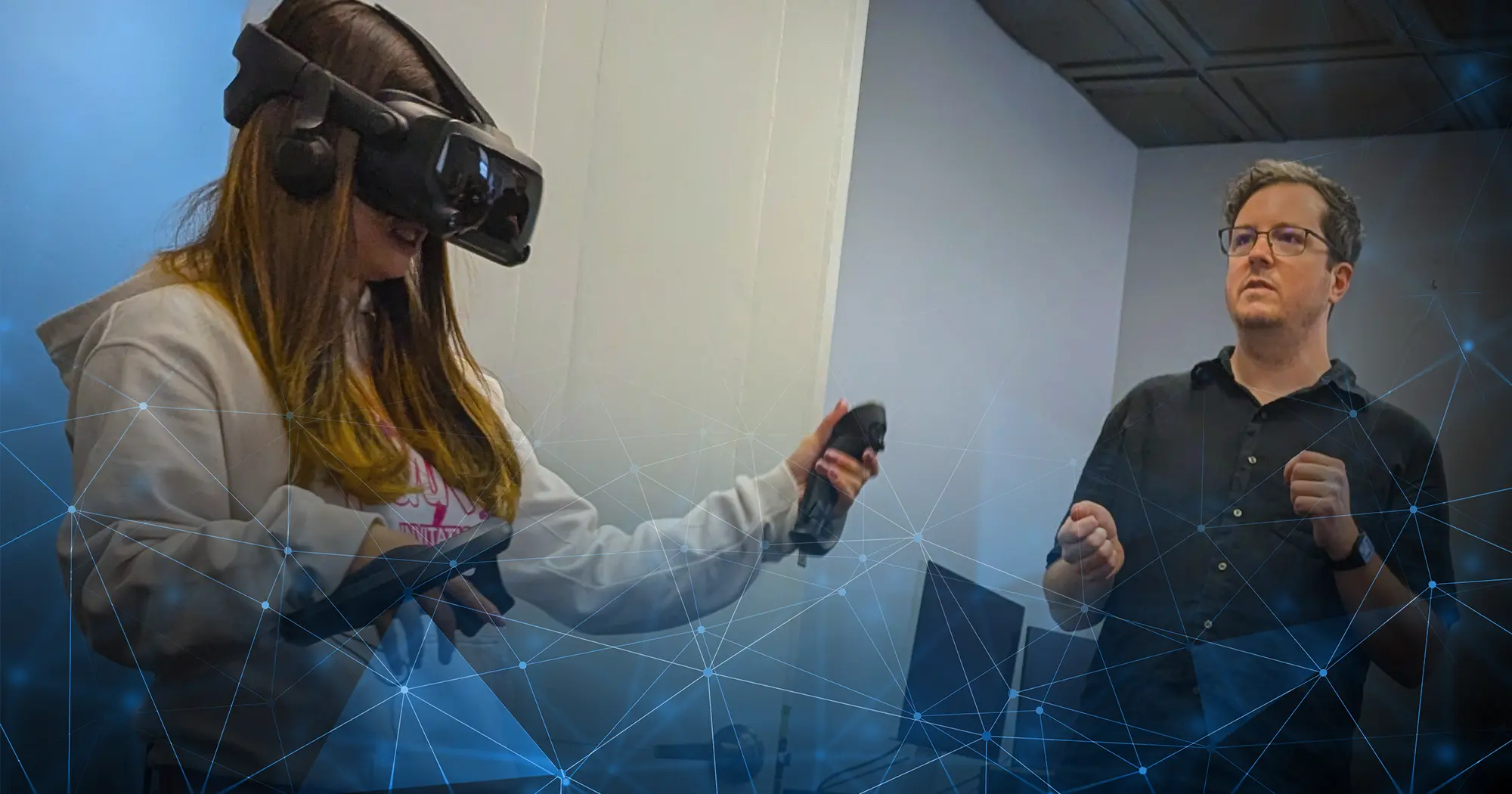
Originally published in the 2024 issue of the School of Liberal Arts Magazine
As the boundaries between traditional academic disciplines continue to blur, Tulane’s School of Liberal Arts has embraced an interdisciplinary approach to teaching creative technologies. Department of Music Senior Professor of Practice Rick Snow and Professor of Practice in Digital Media Practices Jon Chambers are helming this innovative curriculum, offering courses that blend the arts, computing, and critical theory.
Chambers brings his experience as a new media artist to his courses in game design and data visualization. Courses like Game Studio, Educational Game Design, and Personal Data Visualization explore the technical and creative aspects of game development and the ways in which we see data as influential as its content. According to Chambers, the hands-on, project-based nature of these classes is key. “Earlier in the semester, students learn the skills for game-making and creative coding through in-class workshops, then they’ll need to complete assignments outside of class,” he said. “As we get closer to major project due dates, there will be more in-class studio time so that I can provide direct mentorship.”
This blend of instruction and independent work helps students develop a diverse skill set, from coding and visual design to creative problem-solving. “These skills can be applicable to graphic design, web design, the film industry, interactive exhibit design, virtual reality development, and even fields like education and data science,” Chambers noted.
In a nearby classroom, Snow leads a similar charge with his Algorithmic and Computer Music course. His background in composition and electronic music informs an approach that encourages students to explore the intersection of technology, sound, and artistic expression. Recent focus areas have included immersive sound composition, public multimedia installation design, and a musical robot project.
Both instructors emphasize the importance of hands-on learning. “We spend a lot of time in the computer lab, experimenting with different techniques and troubleshooting issues as they arise,” says Snow. “But I also want students to engage with the critical and theoretical aspects of this field, considering the societal implications of algorithmic music and its role in contemporary culture. The goal is to empower them to become not just consumers of technology, but active producers and creators.” Chambers agreed, adding, “This intellectual rigor is a hallmark of SLA’s approach, setting it apart from more technically focused programs. I encourage students to question assumptions, to push the boundaries of what we consider ‘music’ or ‘games’.”
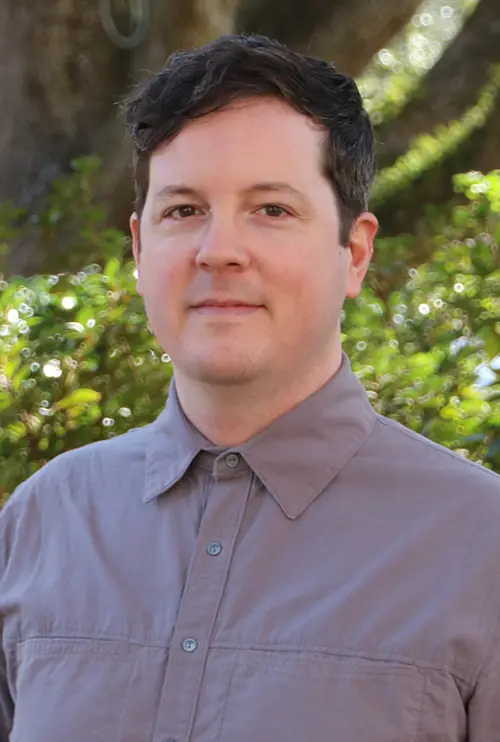
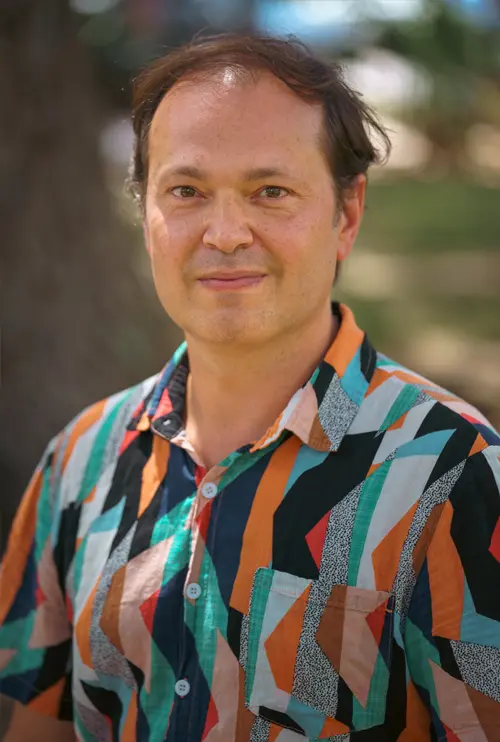
“Although these courses are firmly situated in the School of Liberal Arts, they have attracted students from across the university, including from the School of Science and Engineering, as well as from Business, Architecture, and Public Health,” shared Snow.
As technology continues to transform the creative landscape, SLA’s innovative courses in game design and computer music are equipping students with the skills and perspectives needed to thrive in an increasingly interdisciplinary world. “These courses aren’t just about learning software or coding — they’re about developing a critical, creative mindset that can be applied across a wide range of disciplines,” Chambers concluded.
